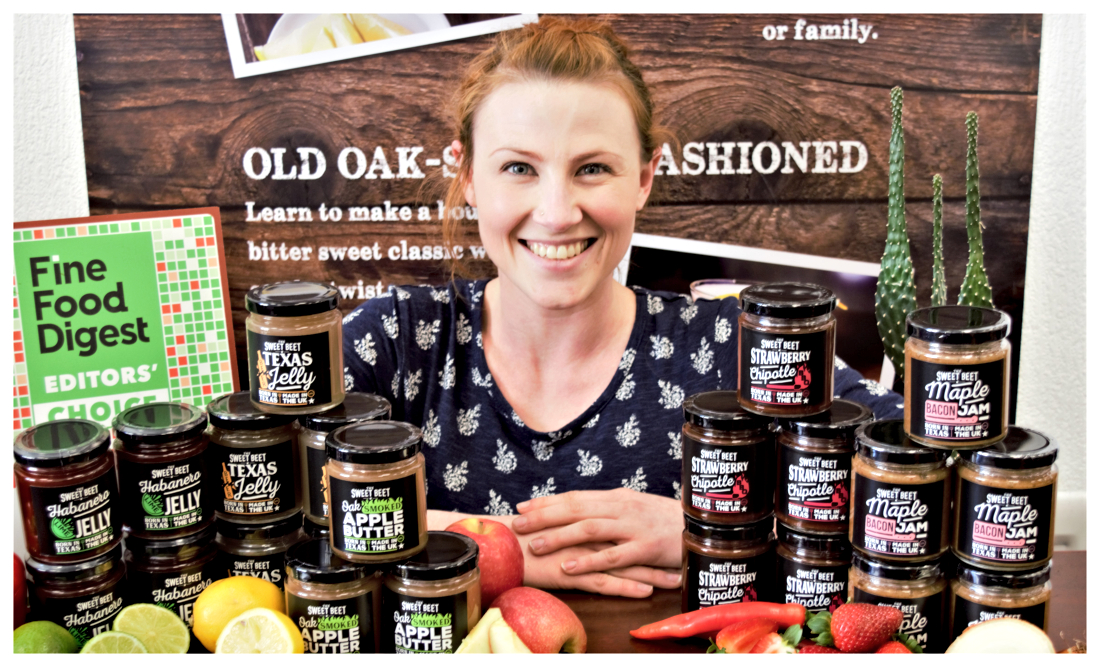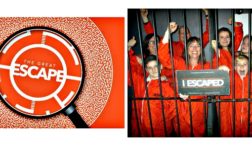When you find yourself waking up in a Mental Hospital one morning, you don’t exactly feel as though you’ll be successful in life – Success at that point meant trying to live a normal life and it certainly was not the type of success I was trying to achieve with my food business.
Lizzy Hodcroft, the founder of the street food brand ‘The Sweet Beet’, started her own entrepreneurial journey while battling against depression. The young foodpreneur sheds light on the importance of looking after yourself while managing the trials and tribulations that come with running your own business.
“This was the position I found myself in at one point and my food startup story is not an anomaly as it’s reflective of so many of us that struggle to find passion in life, an ambition to move forward or where to fit in the world.
Growing up, I was one of the lucky kids that never had to apply myself too much in order to get decent grades and perhaps this is one of the aspects of my downfall.
From the age of fourteen, my view of the world took a sudden change for the worst.
I was depressed, anxious and didn’t feel a part of the society that I had enjoyed during my younger years.
This led me to be diagnosed as a manic-depressive, bipolar and at one point, I even gained the diagnosis of borderline personality disorder.
None of these has stuck through my older years apart from depression and the tendency to battle with anxiety.
From seeking counseling, attending groups or just trying to get out of bed, you don’t really have much energy left for anything else.
Although there is absolutely nothing wrong with taking the time to overcome depression or any other mental health problem, when you finally come out and are ready to move forward with other parts of your life, the time has since passed.
Opportunities have gone and the world has kept spinning on.
By the time I finally had a grip on myself, I found that I didn’t have a lot of options for a job and also soon discovered that the jobs I did have qualifications for had a glass ceiling and lacked a challenge.
I found myself working on a street food spin-off for a restaurant and my role was to create the menu and book us into events.
After a few months, the owner made it clear that he had a lot of other projects on at the moment and couldn’t commit to spending any more time on this project.
He suggested that perhaps I should start my own street food business and without knowing it, he became a catalyst for the beginning of my adventure in entrepreneurship.
It became apparent to me early on that although the street food opportunity was making money, the downside was how time-consuming prepping the food was.
Long hours and physical work on your feet can make it difficult to focus working on the business rather than in the business.
I then came to the realisation that I had a choice to make.

I could either keep working in a business that would have limitations to scaling up or I could break apart the growing interest in the condiments and focus on a business that I could scale quickly, with less need for early-stage large investment.
I’ve found that starting The Sweet Beet business, although extremely exciting and fantastically liberating, can be quite a personal journey of confidence building, growth, and exploration.
As the only person running it at that time, it was completely up to me to take responsibility, action, and control.
You find that, when initially starting out, everything is new and exciting, and the world really does seem like it’s your very own oyster to crack.
However, as your success grows, the pressure you ultimately put on yourself to continue this can at times be quite terrifying.
Imposter syndrome is something that is often found among entrepreneurs as though you can’t believe your luck. I have definitely experienced my share of self-doubt.
I’ve had days where I didn’t think I could ever get up again and I’ve had nights where I’ve cried myself to sleep.
I also know that I’m not alone in how I have felt and the hardship I have fought against.
Resilience and the ability to bounce back quickly becomes your greatest asset.
Entrepreneurship requires a lot of picking yourself back up, dusting yourself off and continuing on without too much momentum lost.
However, I think it’s safe to say that many of us are not prepared for how lonely the journey can be and how challenging it can become when our passion for our business starts to affect our personal life and wellbeing.
It wasn’t long before I felt completely over my head and out of my depth.
I experienced what is probably common when you mix a start-up while also recovering from mental health problems for the first time – that sudden anxiety freeze.
Your mind swirling with all the new to-dos, the business plan you never expected to actually complete, feeling as though there is no good reason you aren’t working at the same level as a business that’s been around for years longer than you have and pressured to admit that you thought a pitch was a kind of throw that was made in baseball.
Being part of the startup space has made me seek out challenges and goals that I would never have set for myself.
It made me confront the future head on but most of all, it made me realise that I had a future in the first place.
Every day I found myself inspired by another founder or startup, their tenacity, their ideas, growth, and positivity.
And one day it dawned on me that others felt the same towards me.
Celebrating the success we achieve, reflecting on the failures in order to learn from them and having an intrinsic knowledge of your strengths and weaknesses is one of the most powerful tools you can access.
I started this amazing journey with a street food business, no plan and a fragile view of myself and the world.
I’m now running a completely different business-focused in the food retail industry, a scalable business model and a clear vision of where the future will take me.
What’s more important than the turnover of your business – the knowledge and confidence of your personal growth and how you harness that into a force that drives you forward each and every day.”







